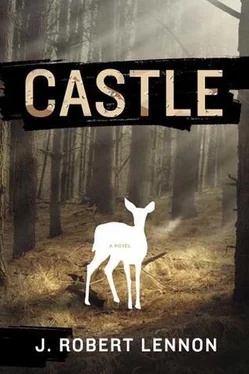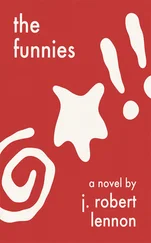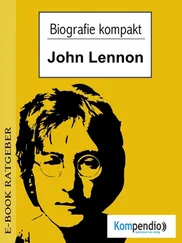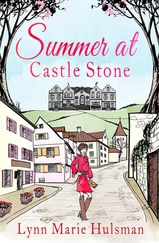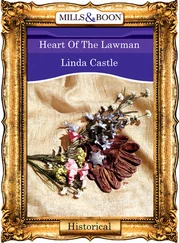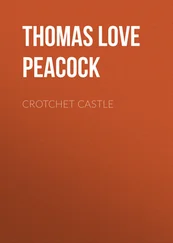As I considered these things, I felt my head slump against my shoulder, and all my analytical acumen dissolved. I did not fight the onset of sleep — if my body and mind required it, then I would allow it to come, would even welcome it.
It was with some considerable disappointment, then, that I found myself waking instantly into the same moment that I had left. Or so it seemed. My muscles did feel somewhat more stiff, and the light appeared to have changed. I blinked, and dragged myself to my feet. My pants were wet from the humusy ground and a pressure exerted itself on my bladder. I relieved myself into a patch of moss, then looked at my watch. It read 9:04. For a moment, I was puzzled — even if I had nodded off only for the barest second, the time was surely past ten. A second glance at the watch revealed the problem: the second hand was not moving.
Such a misfortune was highly improbable. My watch, a military-grade stainless-steel timepiece with sapphire crystal, waterproof to 200 meters, was nearly indestructible, and I had never once neglected to wind it. I spun the crown, and felt, instead of its familiar mainspring resistance, a sickeningly smooth, freewheeling rotation. Somehow, in defiance of all logic, the watch was hopelessly broken. I tried to remember what I had done to it since I set out earlier that morning, and came up with nothing. There was no anomalous occurrence that could explain its current state. This was a watch that had had the leg of an oak desk set down upon it, that had been run over by a truck, and here it had ceased working through no greater violence than the swinging of my arm.
With a sigh, I shouldered my pack and gazed about, taking stock of the situation. I needed several seconds to find the sun through the branches of the conifers that now surrounded me; once I did, I determined that it must be past noon. According to my compass, I had been traveling in the right direction, and now I aligned myself with it and continued on my effortful way.
After walking — or, to be precise, struggling — for fifteen minutes or so, I began to experience yet another new phenomenon, one to add to my exhaustion and equipment failure. It was, inexplicably, fear. The sun, already dim, had slid behind a cloud, and the gloom of the forest had deepened; the silence that had at first seemed an aid to concentration now merely felt strange, alien. Where were the insects, the animals? The one creature upon which I had come to depend in these woods, the mysterious white deer, was nowhere to be seen, and the trees, in their towering inertness, seemed to be closing in on me. I braced myself against the trunk of one to adjust my sock, which, soaked through in spite of my new boots, had doubled over on itself, and my hand slipped, and I tumbled into the mud.
It was there, lying on the ground, with a sharp twig digging into my calf and my filthy fingers numb with cold, that I allowed myself to grow angry. A low growl formed deep in my throat, rose to my tongue, and transformed itself into a scream of rage. I leaped to my feet, straightened my pack and hat, and rushed headlong through the thicket, crushing branches beneath my boots. I felt my face flush and sweat break out on my forehead, and my mind seized upon the most recent object of anger that it could find: my sister Jill.
Murder. That’s what she accused our father of: murder-suicide. She believed, or claimed to believe, that he had shot my mother in cold blood, using the gun he had kept hidden in the velvet-lined box in his shed, and then turned the gun upon himself. To my dismay but unsurprise, it was this same interpretation that the police had chosen to believe, as did the few acquaintances my parents had had.
Of course my father had killed himself. There was no question of that: when his body was found, the gun lay inches from his hand, on the floor beside the overturned chair he had sat down upon to do the deed.
But my mother’s death was another matter entirely, and I refused to believe that my father, for all his flaws, would ever have taken the unimaginable step of murdering her. It was true that they had fought, that their marriage was weak. And there was no denying that the same weapon which killed my father had killed her as well.
That, however, was the only evidence of murder, and there were ample grounds for believing that my mother’s death had, in fact, been an accident. Take the gun, for instance. It was an Enfield No. 2 Mark 1, a British firearm of 1930s design, commonly used by the French during the Second World War. This gun was a revolver, practically an antique, and at such an advanced age, and in the hands of such an inexperienced user, must have been spectacularly unreliable. Adding to this was the fact that, on the table he had been sitting at when he died, there lay a greasy cloth, a bottle of lead remover, and a bronze barrel brush. My mother, meanwhile, was found crumpled in front of the sink, into which water was still running when a neighbor discovered the bodies. She was wearing her striped kitchen apron and her hands were wet. Obviously, my father had been cleaning the Enfield (which I later learned he had brought home from his postwar service in the army) while my mother stood nearby, washing the dishes. While he was reassembling and loading the weapon, it had gone off, the result of either a malfunction or his own error. The shot had killed my mother, and my father, driven to despair by the horror he had inadvertently caused, raised the gun to his head and shot himself.
Such a scenario seemed likely to me at the time, and even likelier the more I learned about weapons and how to handle them. But the police were not interested in my interpretation of events, and my sister even less so, and it was about this subject that we argued on the day of their burial. Now, crashing through the underbrush, I pictured my sister’s flushed young face, rubbery with drink; I imagined punching her over and over, as I might have done — but restrained myself from doing — on that day, and her nose running with blood. The face changed to that of the ruined woman she had become today, laughing at me in my own home, a cigarette dangling from a corner of her mouth. How dare you impugn my father? I said to her in my mind, and soon I was saying it aloud, shouting it as I leaped the deadfall and splashed through the mud: “How dare you! How dare you!”
It was as I was screaming this that the ground gave way beneath me and I tumbled headlong into darkness.
I landed on my side, and my head soon followed, thudding against a smooth stone lodged in the mud. I was not knocked unconscious, but the wind was driven from me, and it was at least a minute before I had gathered myself enough to determine where I was and what had happened to me.
I was lying at the bottom of a pit approximately ten feet deep and six feet in diameter. It was very quiet here, and cold, with snow and ice still covering the ground, and the walls near my head hoary with frost. The pit gave the impression of having been dug with hand tools, not by a machine, and the walls had been scraped smooth and any protruding rocks or roots removed. Slowly, carefully, I tried to get to my feet. My head throbbed, my neck ached, and my muscles, bruised by the fall, protested. But I was able to stand; and, bracing myself with my hand against the earthen wall, I gently probed the painful spots to determine if I had broken any bones.
To my relief, the answer seemed to be no. There were many tender areas around my midsection, and it was possible I had fractured a rib, but no debilitating breaks were apparent. I was, I knew, lucky. I had allowed my emotions to overwhelm my good sense and had made a tactical error. In less benign circumstances, a mistake like this might have resulted in more serious injury, even death. I took a minute to catch my breath, and to stifle my feelings of embarrassment and inadequacy. Then I turned my attention once again to my surroundings.
Читать дальше
